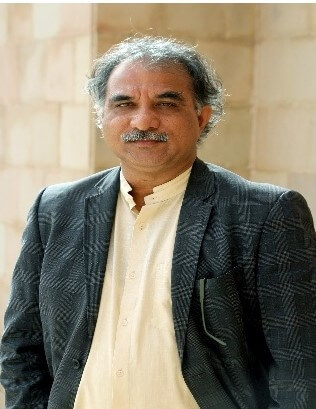Religious Communities And Response To Covid-19: The Case Of The Gulen Movement

Prof. Anwar Alam, Senior Fellow at the PPF
Senior Fellow at the PPFCOVID-19 or Corona virus has ignited the old debate of religion vs science as its faster spread has been traced to congregation of religious faith groups across many communities amidst a worldwide call for social distancing in order to contain the spread of the virus. Thus, the congregation of South Korea’s Shincheonji Church of Jesus in Wuhan has been widely held responsible for half of South Korea’s COVID-19 contractions and in other parts of other South East countries. A major source of COVID-19 in India, Malaysia, Pakistan, Indonesia, and further in parts of West Asia was traced to the congregation of an Indian transnational Islamist movement known as Tablighi Jamaat. The Shia religious congregation in Qom, the major center of Shia Islamic knowledge production, was identified as the major source for the spread of COVID-19 in Iran, Iraq, Afghanistan, Lebanon, and Bahrain. A good number of Hindu devotees defied Indian lockdown and gathered in various temples on the occasion of the Hindu festival RamNavemi. A few Sikh devotees were arrested for illegal gathering at Gurudawara. There are several reports from the USA that many denominational Churches and orthodox Jewish religious groups continue to hold congregation for religious practices and have been found to be instrumental in the spread of COVID-19 within the country. Worst of all, in view of the conservative nature of American society, many states in USA have officially exempted places of worship from ban on gathering and stay-at-home order.
However, given the global demonization of Islam, Islamic movements, and the widespread prevalence of Islamophobia, Islamic congregations received wide attention from the public for its blind faith and conservative, messianic, and eschatological approach towards life and religion. However, a careful observation reveals that similar approach to religion, life, and normal congregational practices during the COVID-19 pandemic has been found among segments of many religions and their communities including Hinduism, Christianity, Judaism, Sikhism, and many others as mentioned above. While religious gatherings have been blamed for the spread of this virus, “secular gatherings” have also been potential carriers. For instance, one can trace the roots of this virus’ spread across Europe to an Austrian Ski resort, a famous tourist destination in the village of Ischgl in Tyrol, despite warnings beforehand from public health officials as early as March 5.
It is in the above context, particularly the raging issue of religion vs science or religious vs secular, that I am trying to figure out approach of “Gulen movement ”(also called Hizmet movement,) towards dealing with this global pandemic. The Gulen movement is inspired by Fethullah Gülen’s pacific exposition of Islam’s universal values. It has considerable presence with networks of schools, universities, dialogue centres and relief organisations across 150 countries of the world. The movement is currently facing the existential dilemma in the backdrop of the brutal crackdown of the Erdogan regime in Turkey, itsbirthplace.
It seems to me that the perspective of Gulen movement towards the phenomenon of COVID-19 is shaped through two broad principles: (A) relationship between religion and science in general and (B) revival of ethical dimension of Islam. The Movement sees the relationship between the religion and science as one of complementarity or one of organic whole, as opposed to modern discourse which presumes a perennial inherent conflict between the two, mostly shaped through Church-State struggle and development of positivism in the European Continent which eventually led to the secular’s high distrust towards religion and regulation, control, marginalization and finally banishment of religion to the other world. The more religion, science, and secular became modern, ideological, and identity discourse, the more they became bereft of their inner ethical dimension, lost their internal connectivity to each other, and finally found themselves in an antagonistic relationship, often resulting into violent responses. For Gulen movement, religion and science are two mega methods and approaches to address the various aspects of the ever-changing complexities of life processes with a view to create a harmony between their physical-material, metaphysical, and spiritual aspects.
It is this ethic driven human discourse upon which Gülen constructed a philosophy of life based upon the unity of religion and science, heart and mind, universal and particular, and reason and faith, which on the one hand prevents the “process of othering” – whether emanating from an exclusive understanding of religion or secular – and on the other helps in dispelling the fear of relatively conservative religio-socio segments of humanity towards cientific-technological solution to human problem such as COVID-19. We learn from history how religious bigotry and fear of treatment of medical science resulted in many deaths during the period of epidemics in the past. The resistance of Ulama (clergy) to state’s prescribed medical measures including quarantine during plague epidemic (1835) and Cholera epidemic (1848) in the Ottoman Empire, particularly in Egypt, has been well documented.[2] Today, a similar situation has come to exist in India wherein a vast segment of the Indian Muslim population is currently exhibiting a strong resistance and non-cooperative attitude towards undergoing any kind of medical testing. It is disheartening that none of India’s premier Islamic organizations/movements-Darul Uloom Deoband, Darul Uloom Nadawa, Lucknow and Jamait ulema Hind, has put up any detailed instruction of combating COVID 19 or made an appeal to wider Muslim community to maintain ‘social distancing’ and undergo medical testing for the same. It must be recalled here that the quarantine system, or what is referred as “social distancing,” in modernparlance was first invented by the sixth Umayyad caliph Al-Walid in early eighth-century AD, in Damascus, to combat the spread of the virus.
A second aspect of Hizmet’s approach towards COVID-19 comes from its ethical understanding of Islam and its universal principles and values which arise from a human-centered Islamic theology and take form in Gülen’s vast sermons and published works as well as everyday praxis of Hizmet movement. Thus, like any Islamic movement, or for that matter like any believer, absolute belief in hereafter (life after death) is the cardinal principle of the Hizmet movement. However, unlike many other Islamic religious groups, the Hizmet movement does not disassociate the “earthly life” from the Hereafter. In other words, whereas many religious movements, whether with a political or social focus, tended to pay a very less premium on building human resources with an idea that real life begins in Hereafter, the Gulen movement, under the spiritual leadership of Gülen, invested heavily in human resources and in developing human capabilities through the combination of Islamic universal ethics, morality, and scientific knowledge. This system has an understanding that the most important call of Islam, as exemplified in the model of Prophet Muhammad, is the preservation and balanced growth of lives on Earth which demands ceaseless positive actions that will be accounted for in the Hereafter. All other principles and rituals of Islamic practices must be subjected to this fundamental principle of Islamic universalism.
Guided by the Islamic principle of preservation of life in view of challenges posed by COVID-19, Gülen promptly issued a formal statement on March 13, 2020[3] offering his profound condolences to all those who lost their loved ones, asked people to trust public health officials and to take precautions based upon medical and scientific data, to show empathy with victims, and offer help to the needy in dealing with COVID-19. When I inquired from one senior volunteer of Gulen movement in India about movement’s position on COVID-19 he immediately responded without any pause that “protection of life is the most important duty of Muslims in accordance with Islamic faith” and then further stated, “whom to preach to if there will be no human beings?” Unfortunately, many Islamic movement leaders and government officials in Muslim communities fumbled; ignored World Health Organization guidelines and did not prevent Muslim gatherings either on Friday or on other social occasions partly due to ideological understanding of iman (faith) and Hereafter with a consequence that they became one of the major source of COVID-19 in their respective countries. The Pakistani government had to obtain a fatwa from Al Azhar, the famous Sunni Islamic seminary, to enforce its ban on Friday congregations!
In view of mandatory dailyprayersin Islam including Friday congregation a question has emerged whether a mosque, as well as Islamic congregation on Friday, is an essential part of Islamic faith, and whether or not it is permissible to abandon or forbid these prayers. I do not have training in Islamic theology and hence I lack requisite competence to reflect on such questions. However, what is minimally clear to me in light of my understanding of Islamic history in general, and discourse of the Hizmet movement in particular, is that Islam enjoins the preservation of creation and a healthy life on this Earth which is evident from its expression of mankind as “inheritors of the Earth”. All other principles, rituals, practices and value systems connected with interpretive field of Islam must be subjected to the central maxim of Islamic faith: the duty to preserve life on Earth as God’s vicegerent/trustee.
COVID-19 is a grim reminder to the globalized humanity of the spiritual call of Gülen and principles of Gulen movement and of many such other ethic oriented movements: (a) that the world is truly inter-connected and inter-dependent; (b) that the transparency in dealings, dialogue, mutual trust and cooperation and collaborative research is needed to overcome the common challenges of humanity such as COVID-19; (C) that humanity is in dire need of philosophy that restores the dialogue between mankind and nature (ecology and environment) and develops a harmonious relationship between the two and connects different cultures, traditions and economies based on the universal value of dialogue, tolerance, trust and respect; (d) that modernity must realize its limitations of establishing supremacy over nature; and (E) that mankind must undergo ethical, moral and spiritual training to overcome his/her greed and ego, to develop self-restraint and build the moral capacity to live together and cooperate.








